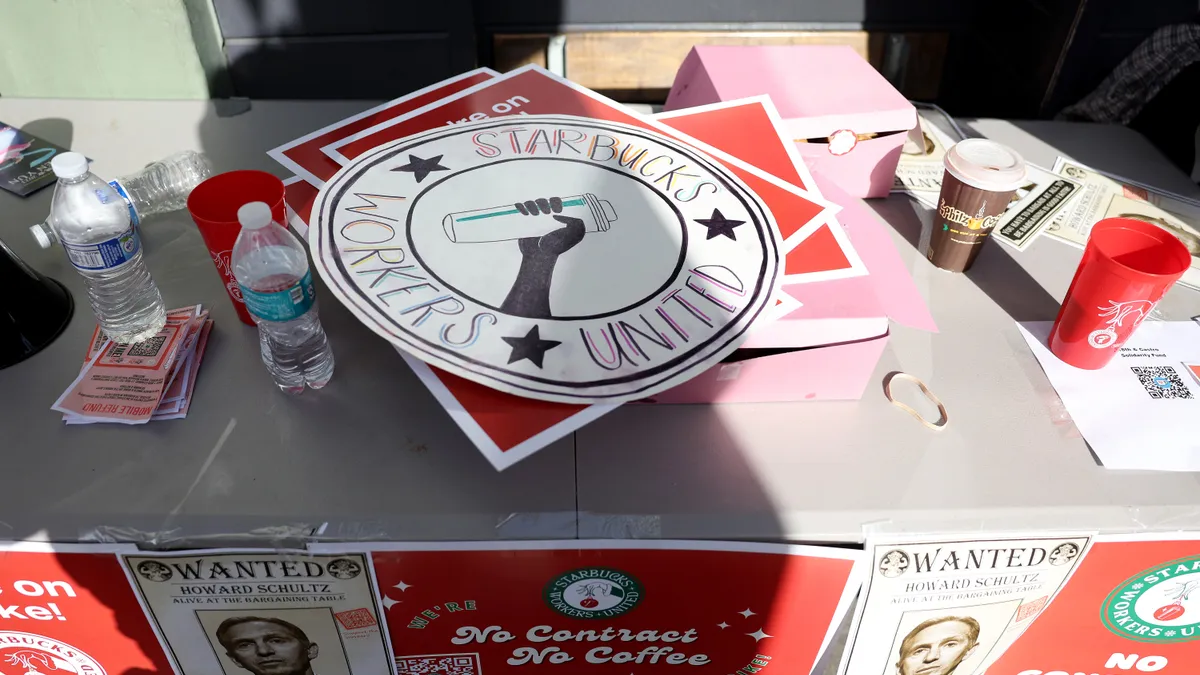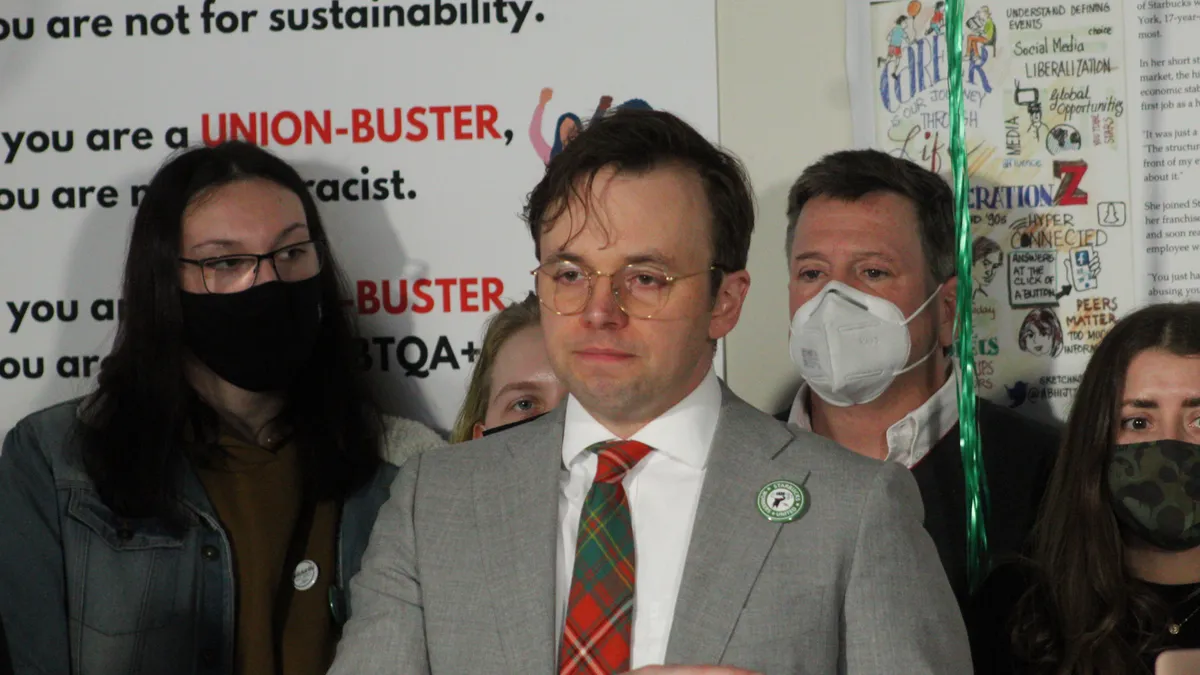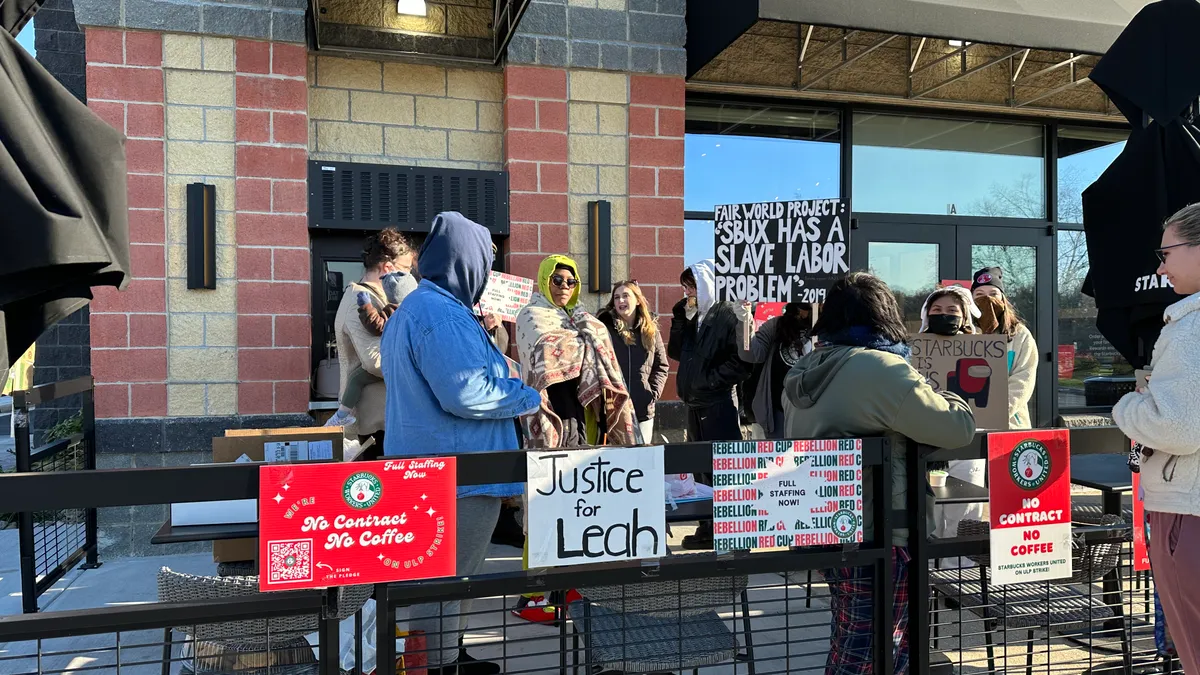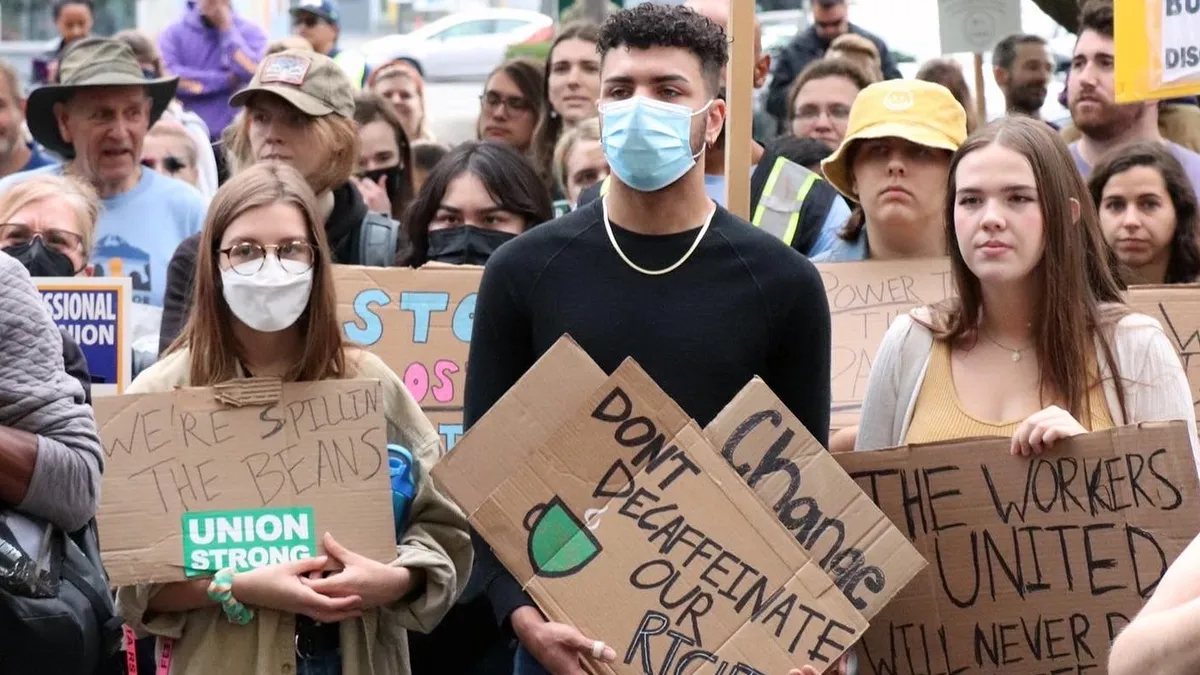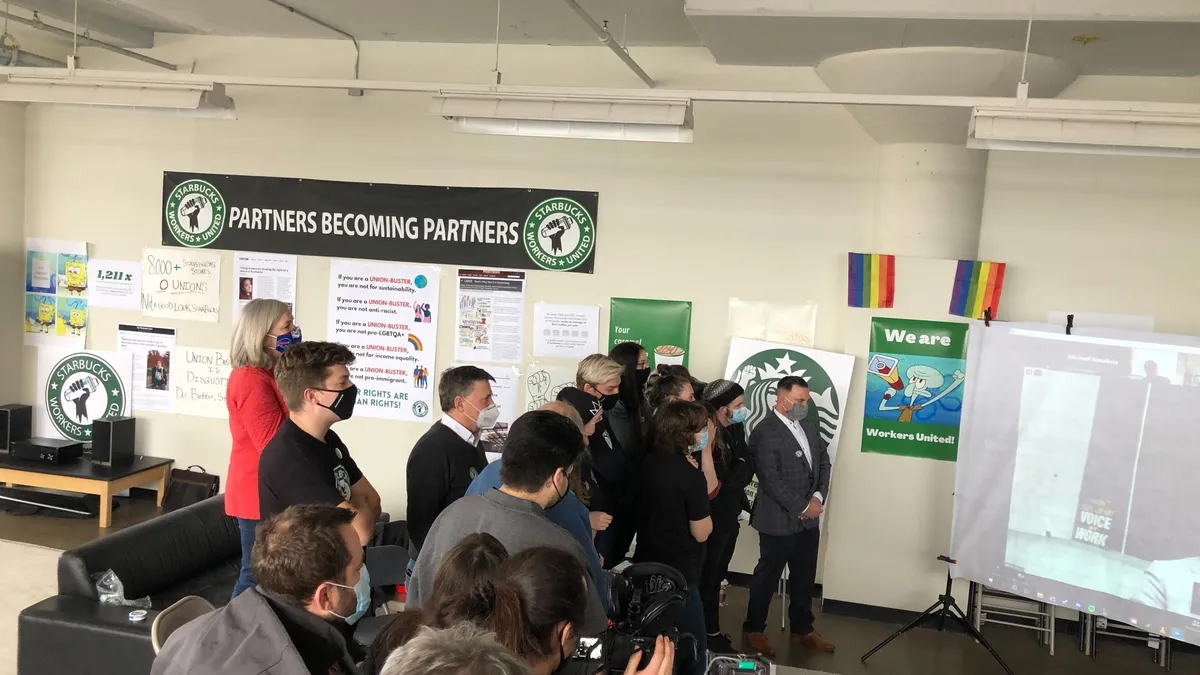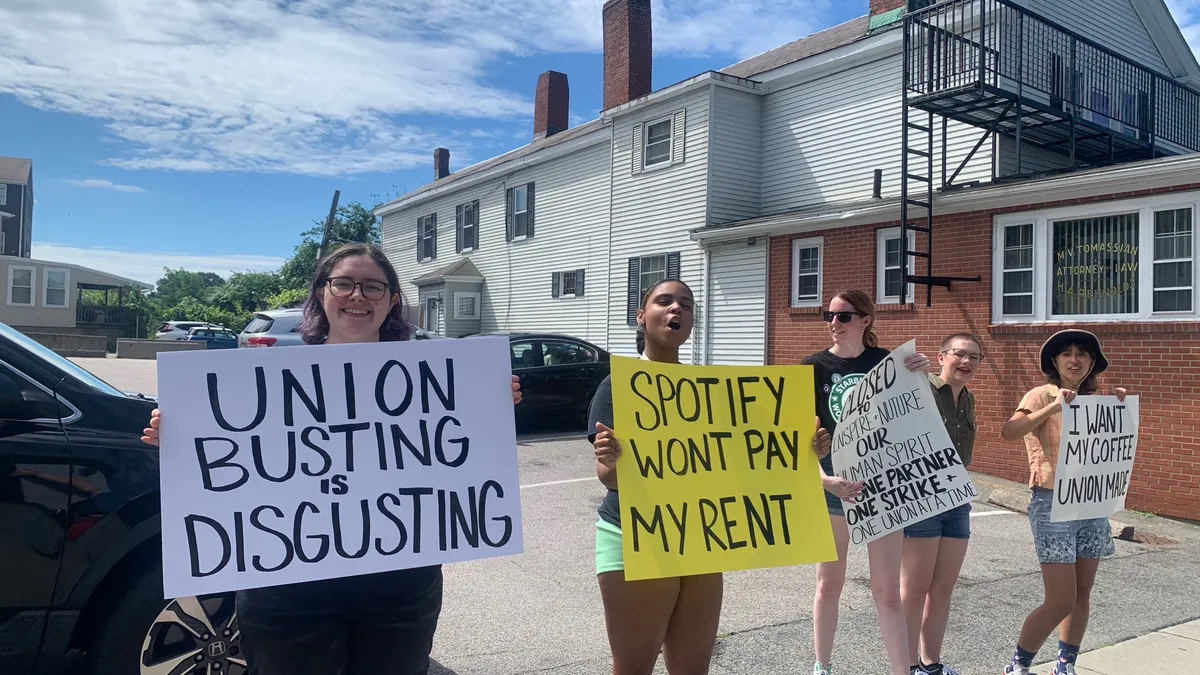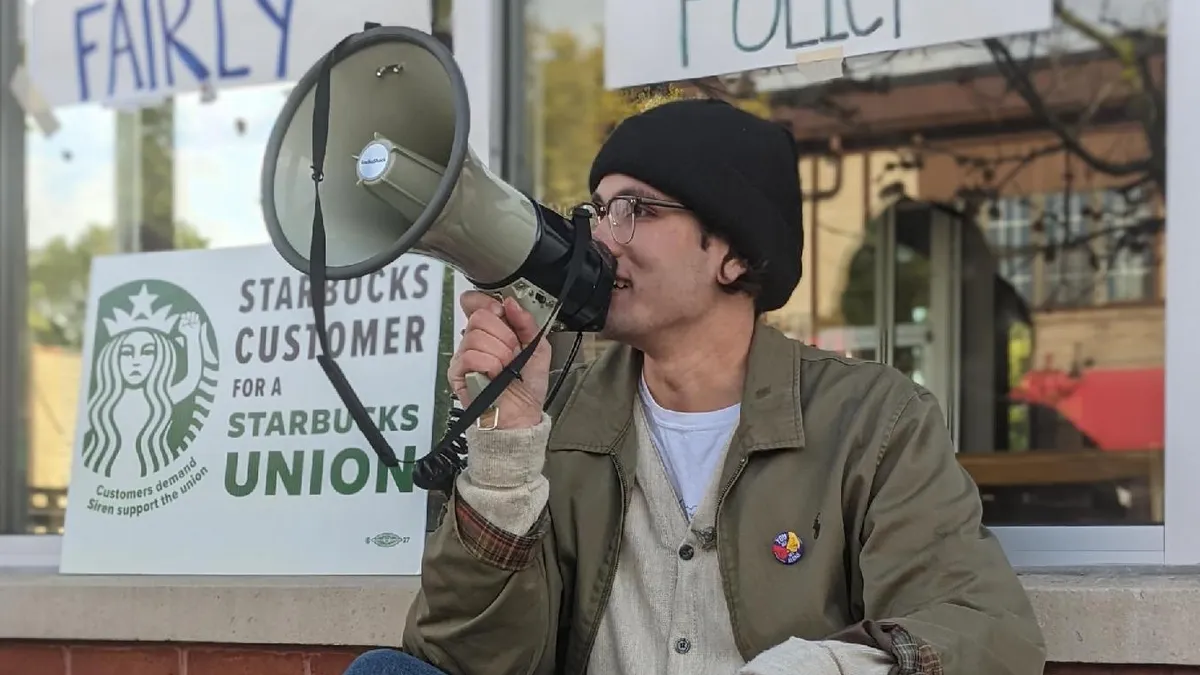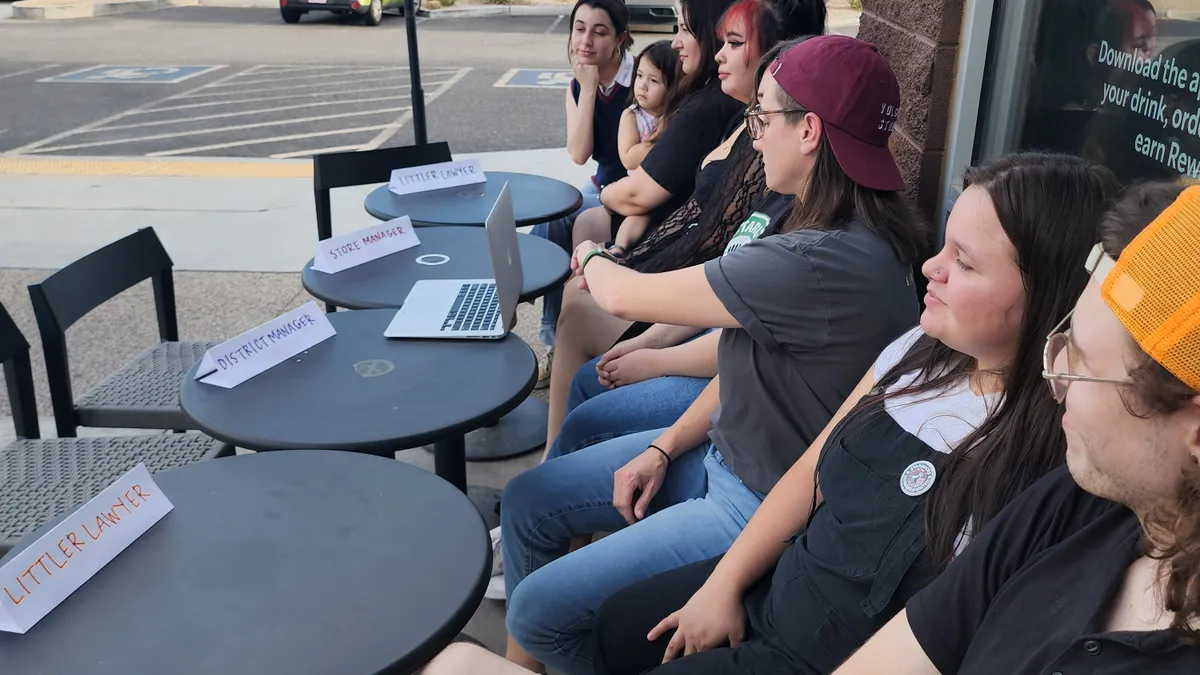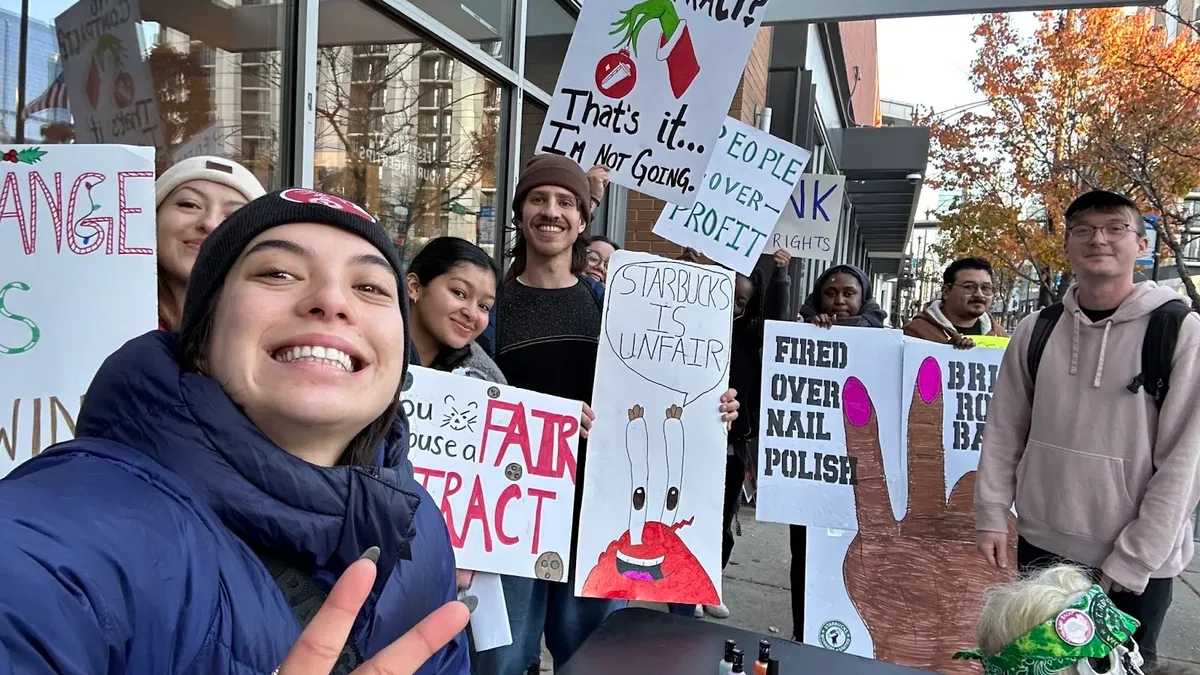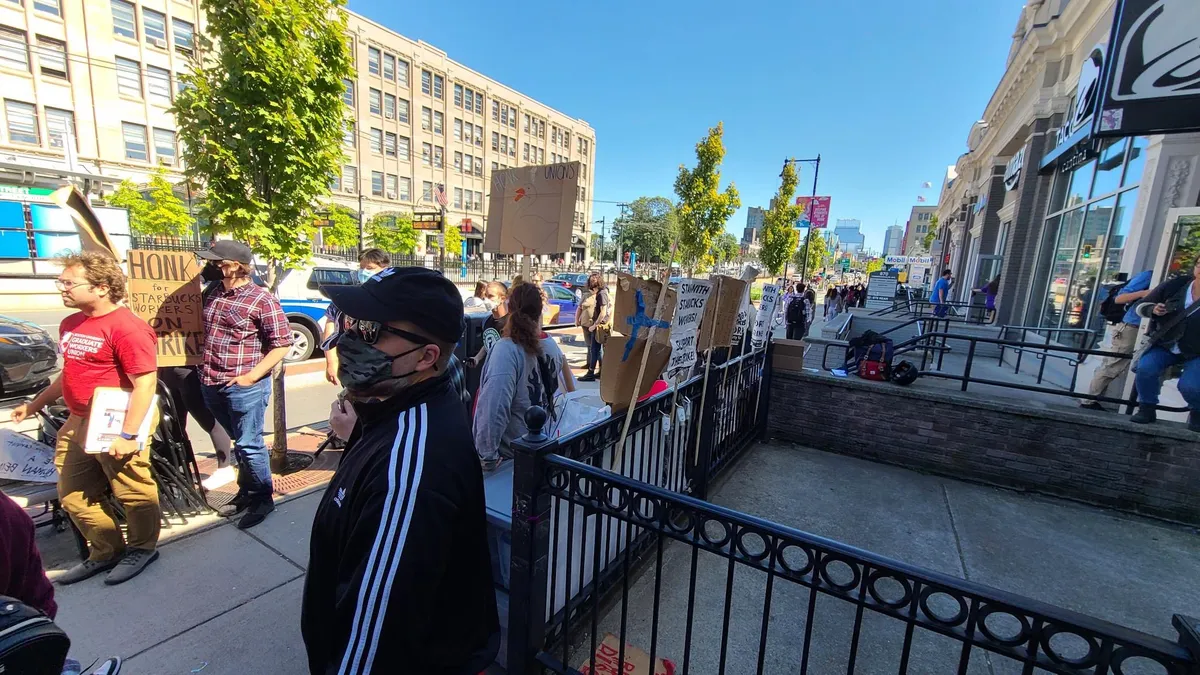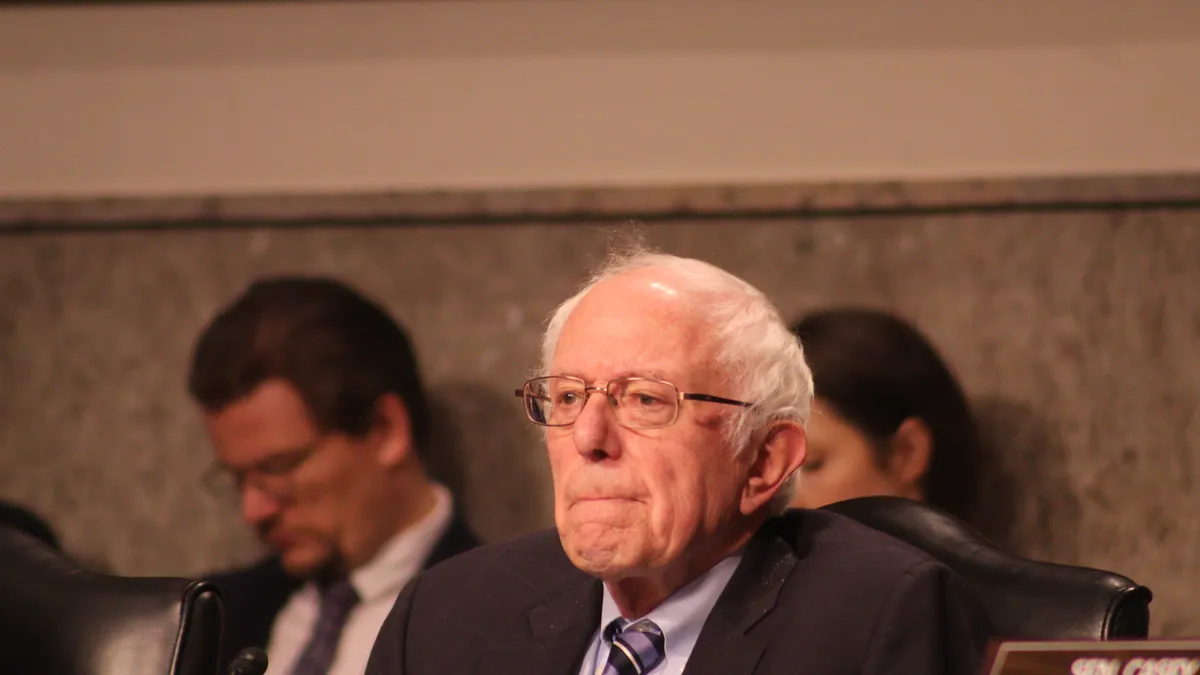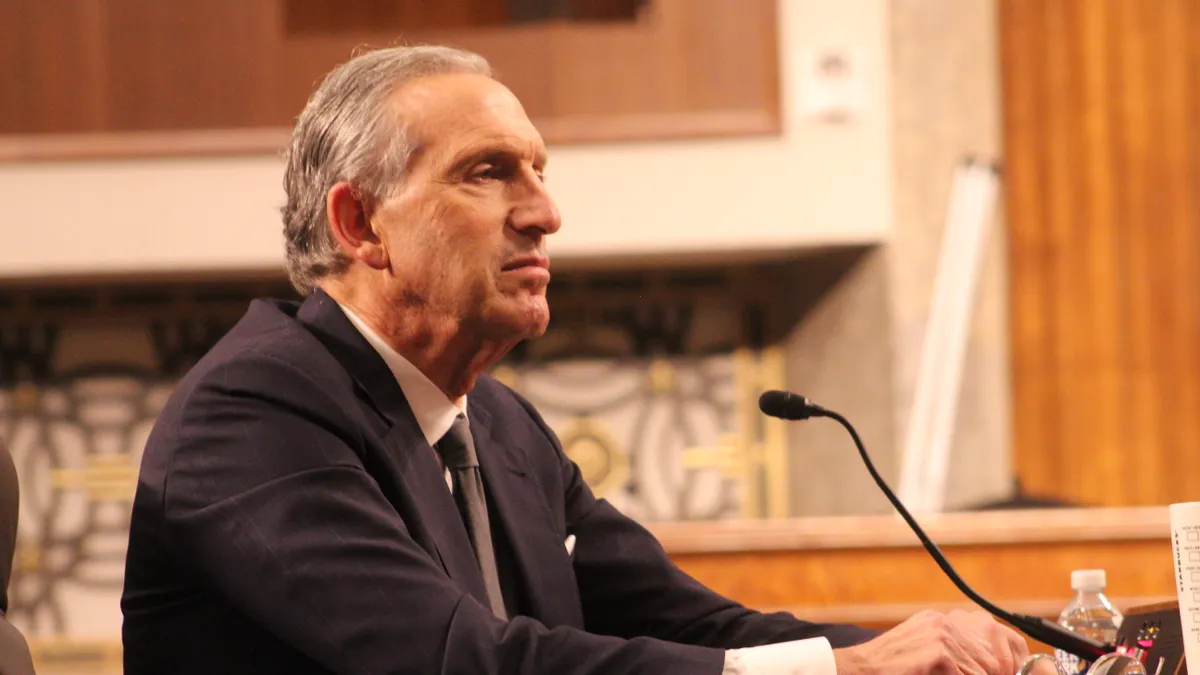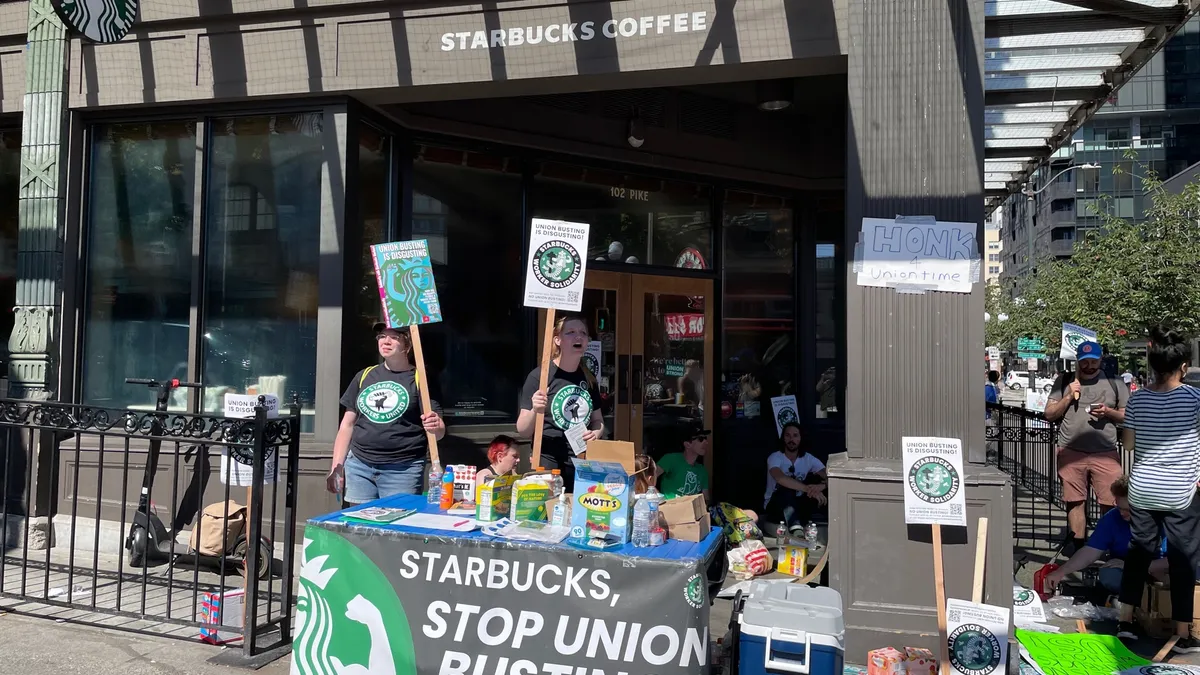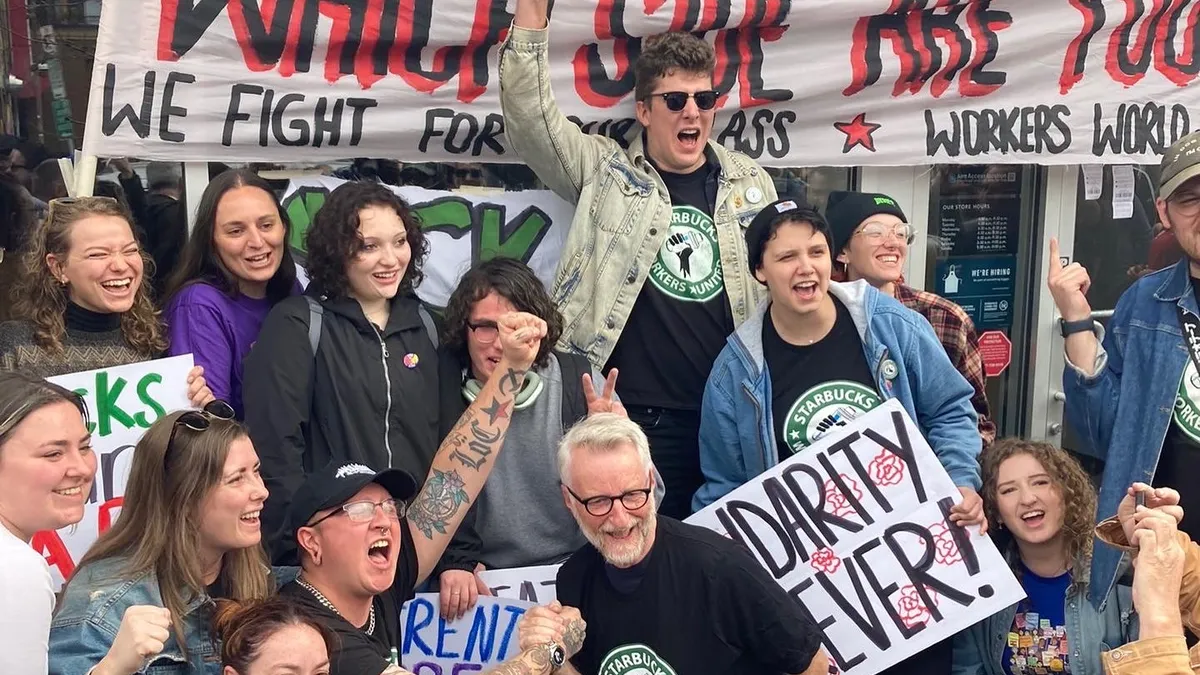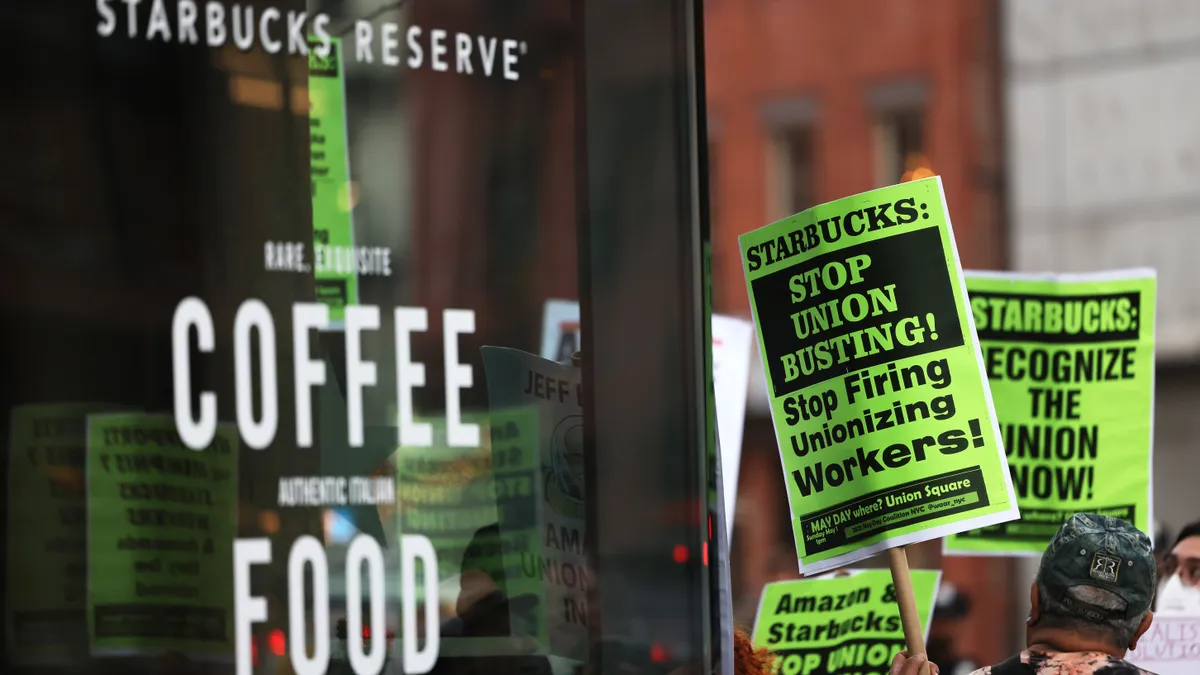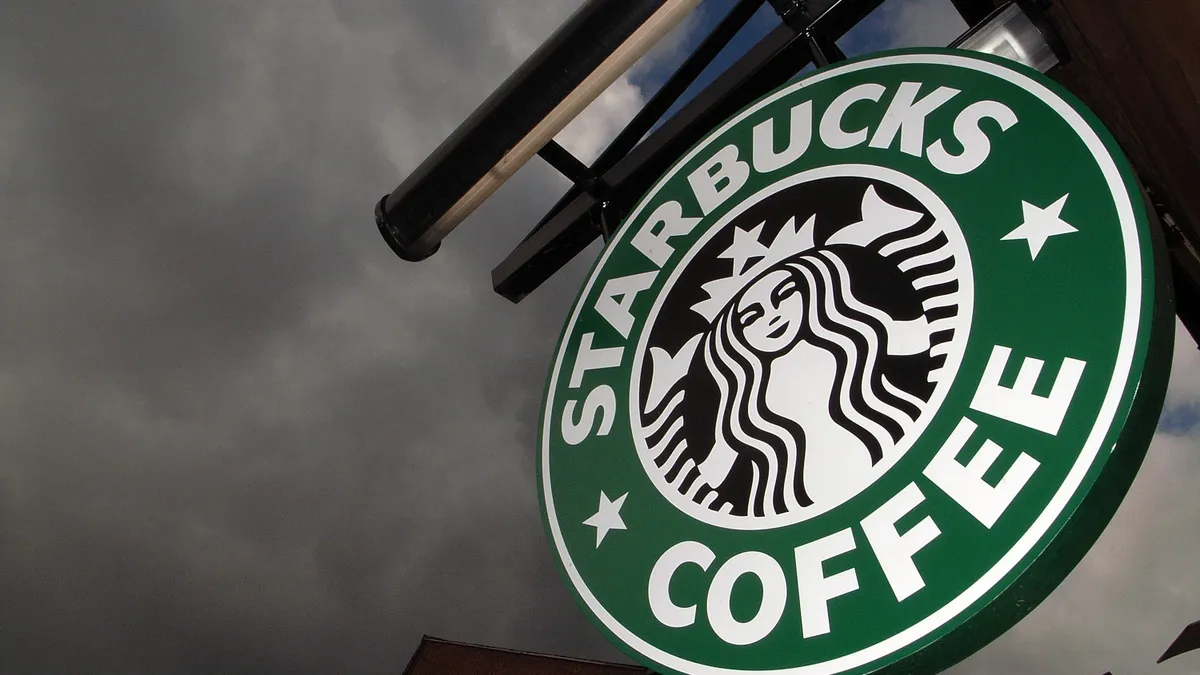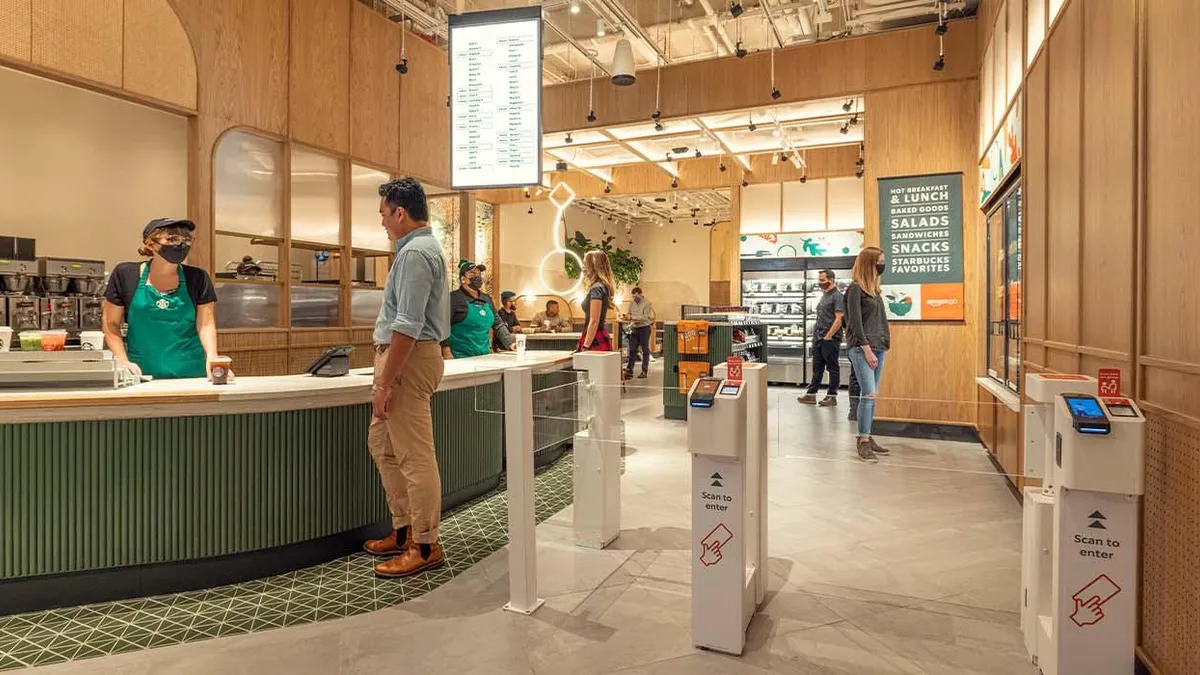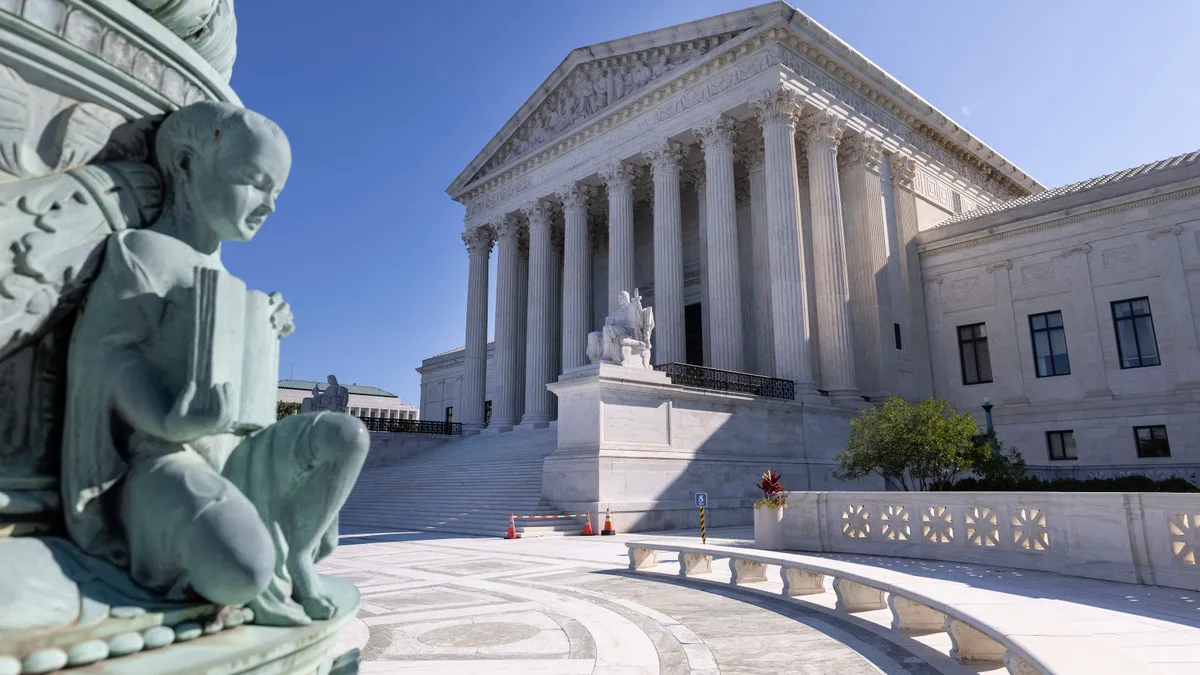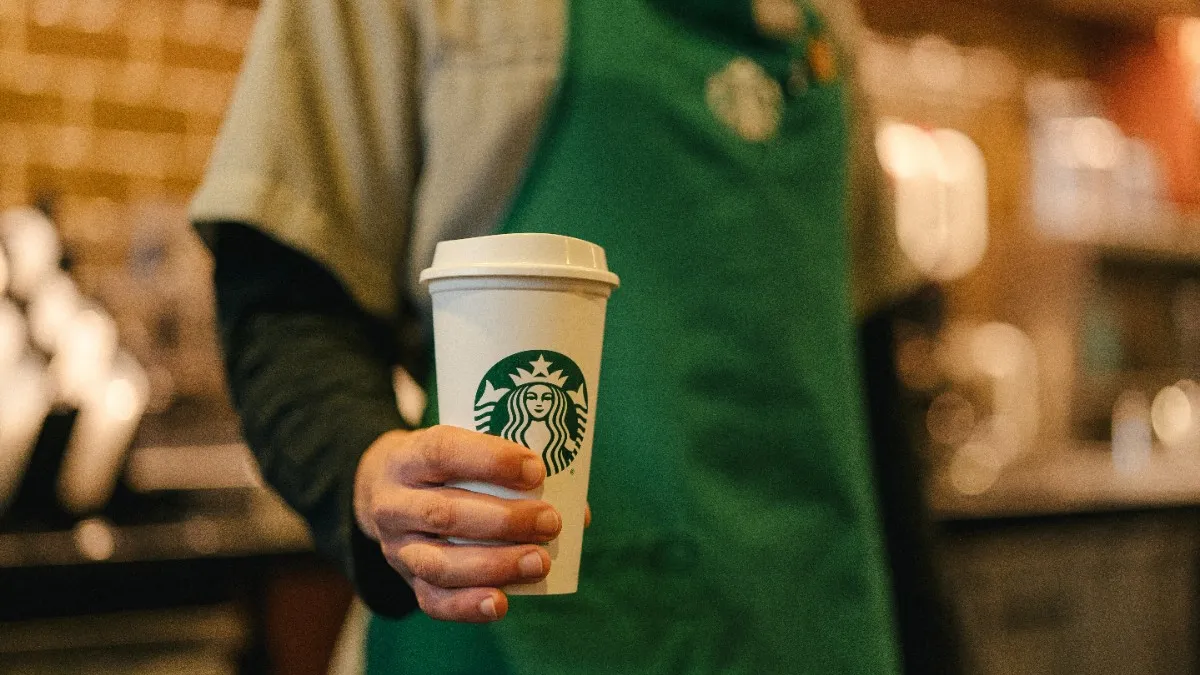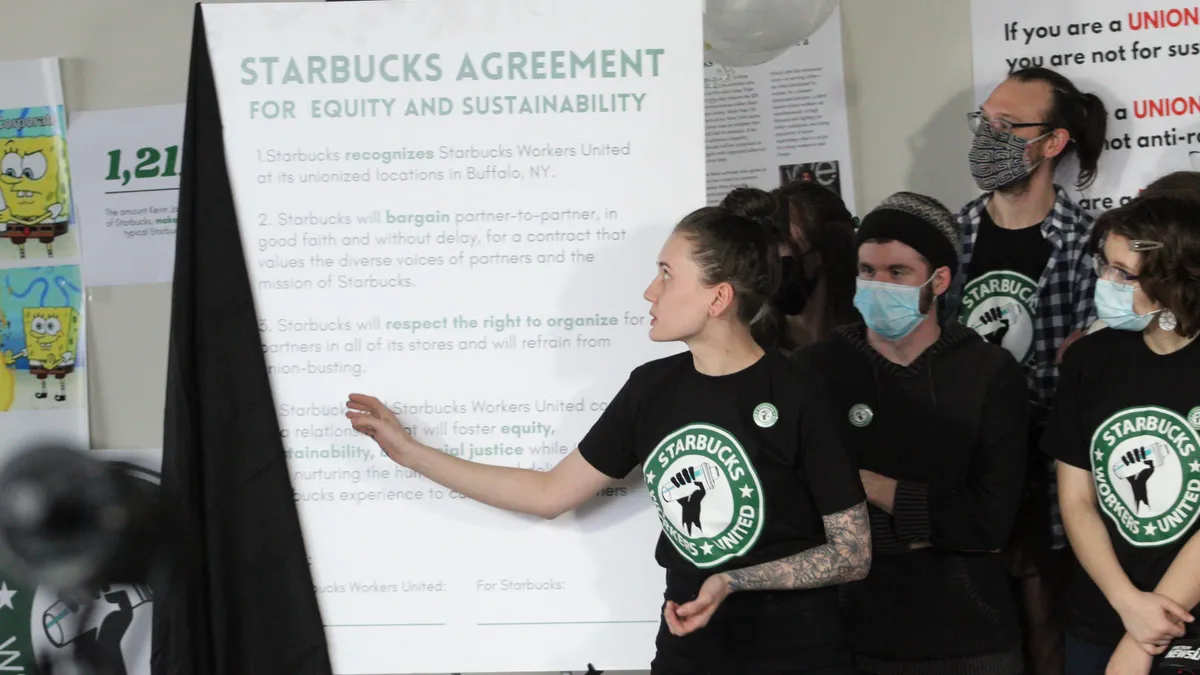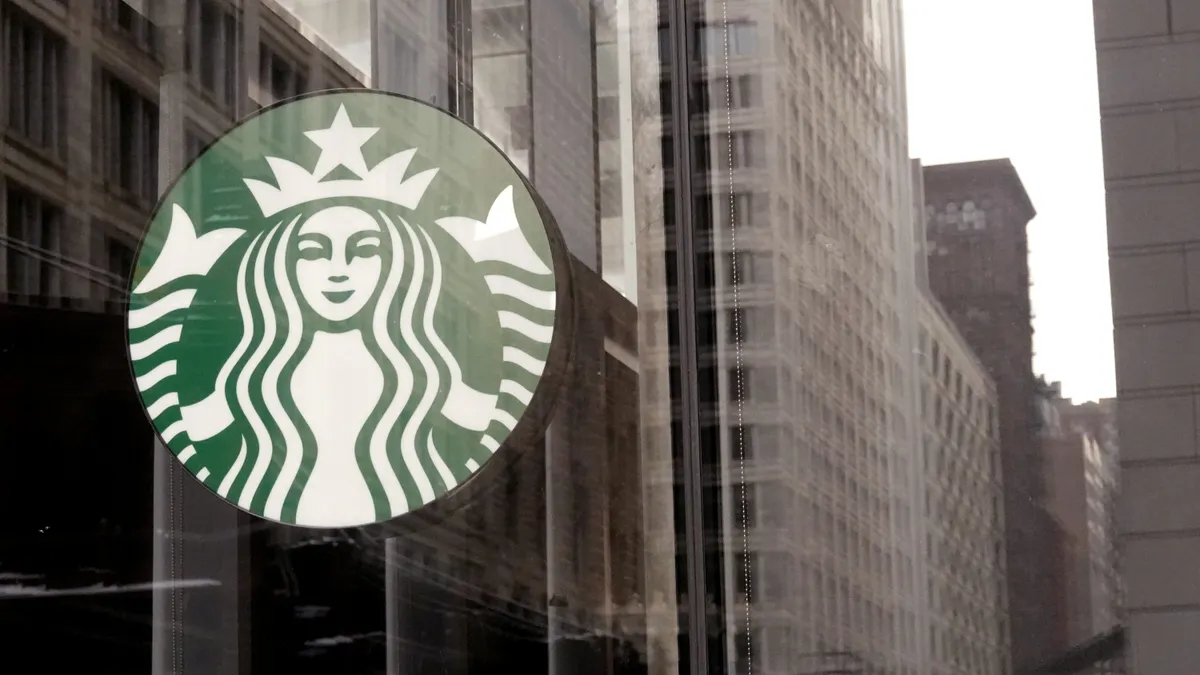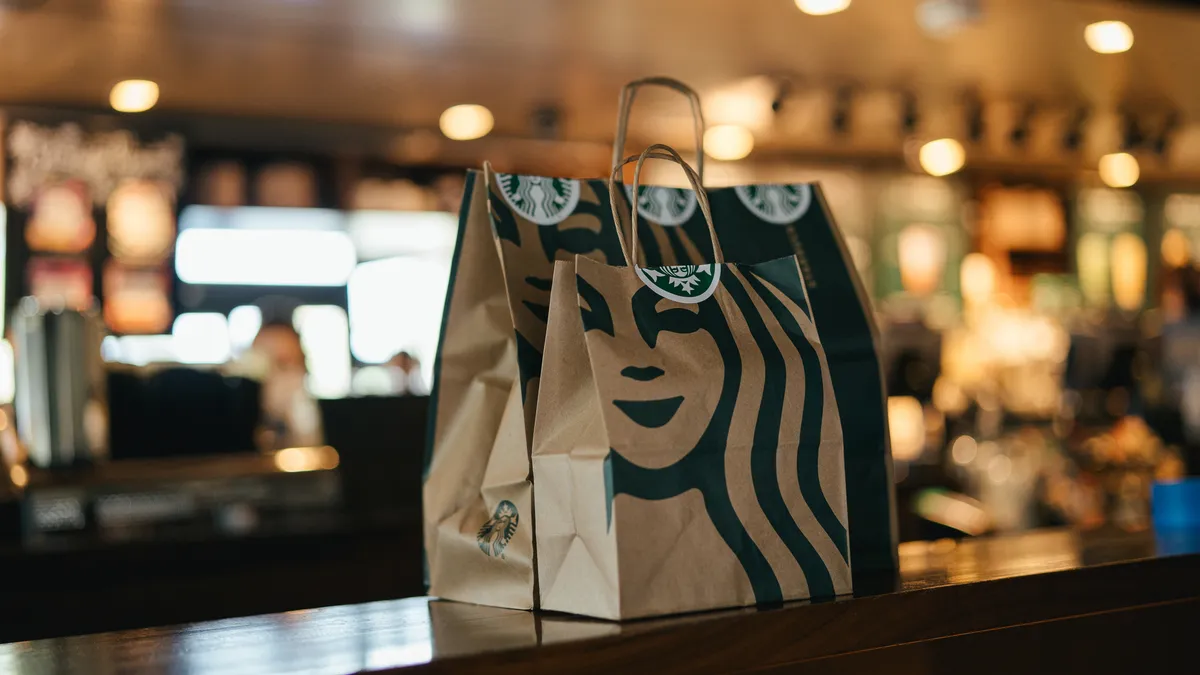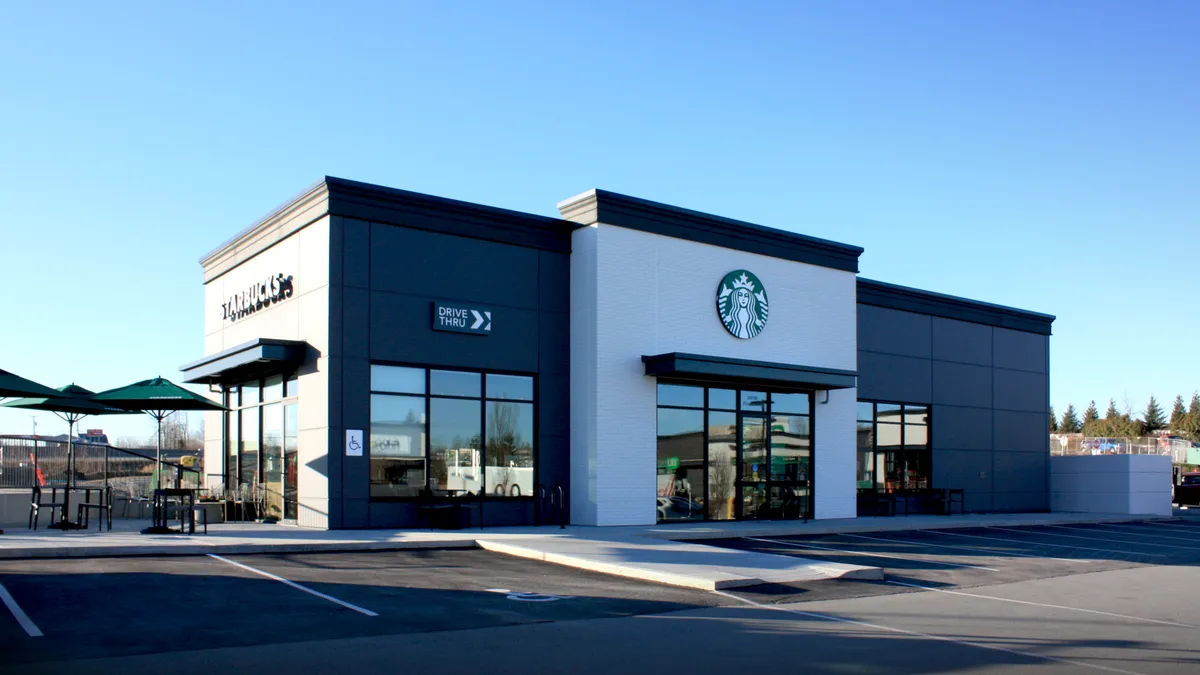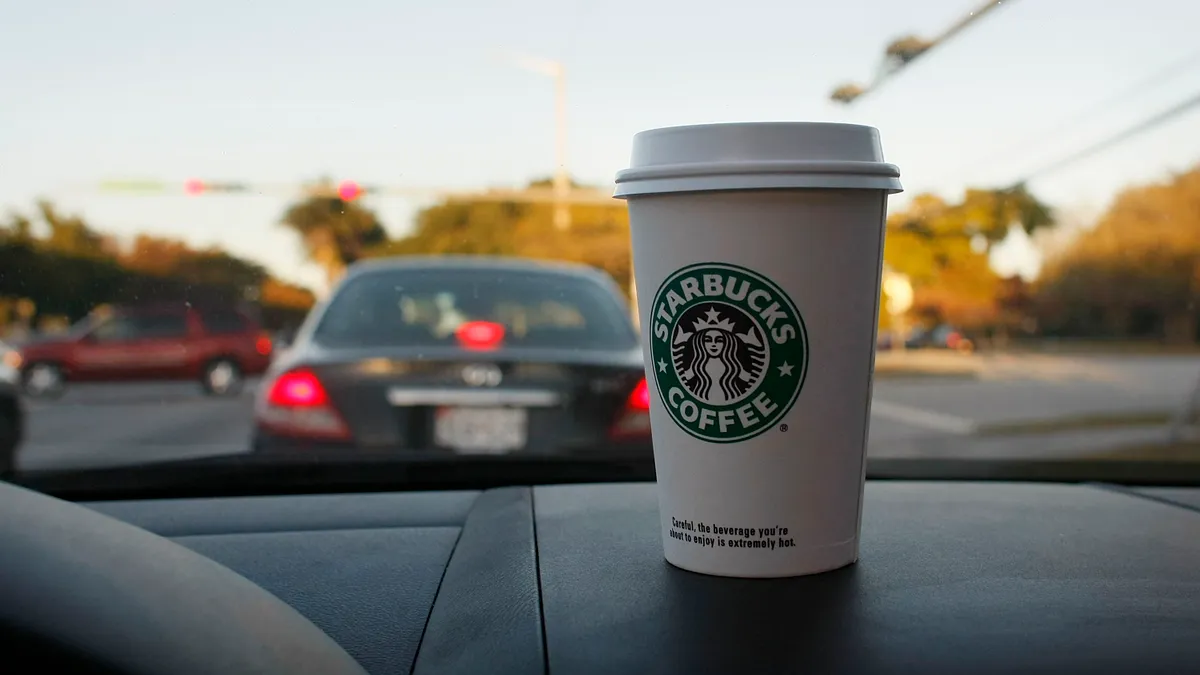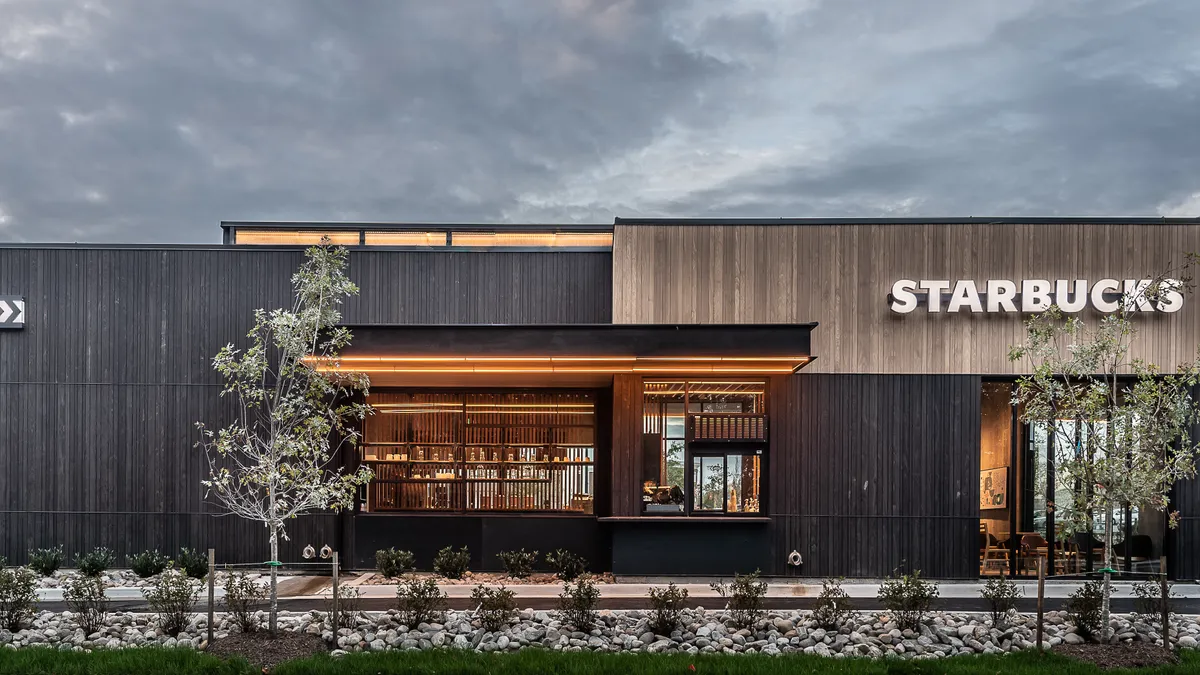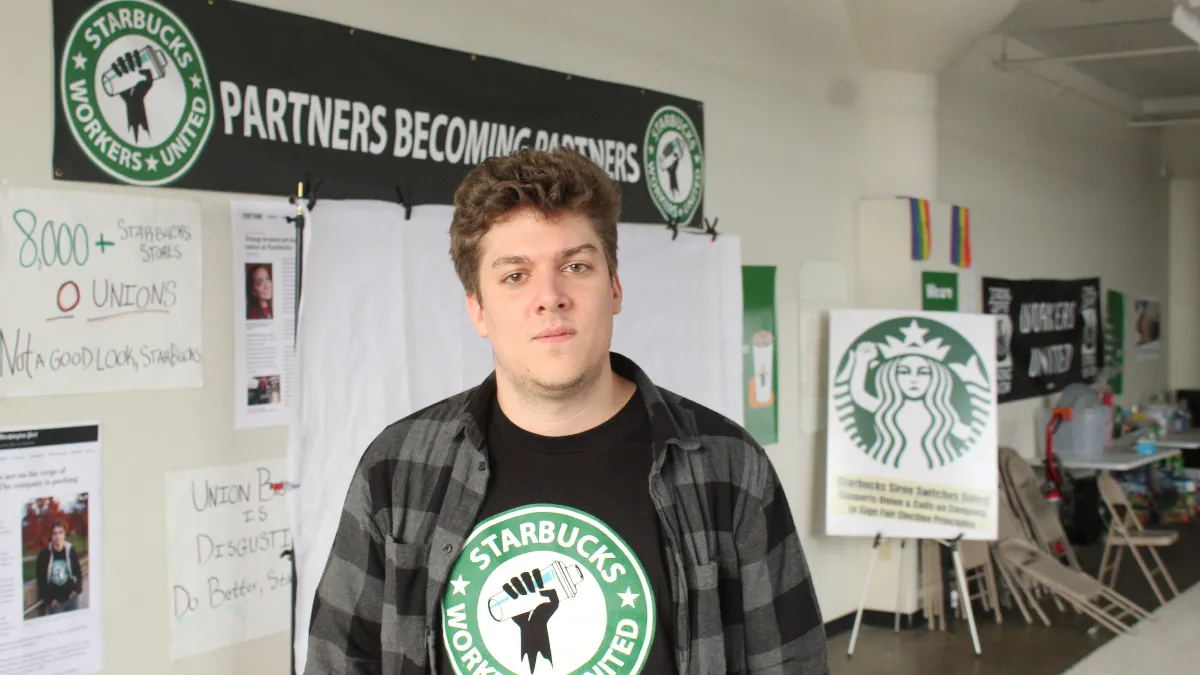After months of relative quiet, Starbucks Workers United announced Tuesday that its membership voted to authorize a strike against the coffee chain to win comprehensive economic proposals at the bargaining table, clear up outstanding litigation and resolve alleged unfair labor practices, according to a statement emailed to Restaurant Dive.
The vote does not commit the union to a specific strike date, but does demonstrate, ahead of the last scheduled bargaining session in 2024, that Starbucks Workers United may take stronger measures against the company than it has since the two parties announced an easing of tensions earlier this year.
The strike vote indicates there are significant points of dispute between the union and the coffee giant. The announcement of the vote claims the company has not presented a comprehensive economic package at the bargaining table.
Both the union and the company highlighted the success of bargaining on some issues.
“Since April we’ve scheduled and attended more than eight multi-day bargaining sessions where we’ve reached thirty meaningful agreements on dozens of topics … including many economic issues,” a Starbucks spokesperson said in an email to Restaurant Dive.
But the union said there were still major issues to be resolved.
“Starbucks has yet to bring a comprehensive economic package to the bargaining table and hundreds of as-yet unsettled unfair labor practices remain unresolved,” SBWU said in a statement emailed to Restaurant Dive. “While talks to settle litigation have occurred, more than $100 million in legal liabilities remain outstanding.”
Strike votes are a common tactic used by labor organizations to demonstrate workers’ willingness to fight and to increase pressure on employers to settle a contract or resolve a dispute. SBWU said 98% of workers who participated in the election voted in favor of a strike. The union declined a request to clarify overall turnout, or how it prepared its members to vote in favor of a strike.
Starbucks Workers United has continued to build up its network of unionized shops, announcing its organizing in one-day blitzes since the beginning of the year. The union now represents upwards of 525 stores, according to the strike authorization announcement, and about 11,000 workers.
That number is a small but significant chunk of Starbucks’ roughly 201,000 hourly workers at 10,000 U.S. company-operated stores. With 5.5% of its workforce represented by unions, Starbucks has a slightly lower union density than the overall American private sector, wherein about 6% of workers are represented by unions.
It’s not clear what form an SBWU strike would take. Previous actions at Starbucks have primarily been organized on a shop-by-shop basis, and have ranged from a 64-day one-store strike in Boston in the summer of 2022, to largely symbolic one-day strikes timed with seasonal company marketing campaigns, the largest of which involved about 220 stores. In June 2023, thousands of workers at between 150 and 180 locations voted to authorize a strike over the removal of Pride decorations at some stores.
In normal circumstances, an indefinite strike across 525 stores would risk the union’s entire strength in a single confrontation, and would be unlikely unless the union saw specific bargaining issues as an existential risk. Simultaneously, one-day strikes at smaller numbers of stores may not put much pressure on the brand. Other unions facing possibly decisive showdowns have opted for flexible strike tactics in recent years. Notably, the United Autoworkers, under reformist president Shawn Fain, used limited strikes at strategic plants to disrupt the operations of major automakers last year.
But these are not normal times for the world’s largest coffee chain. Starbucks has sustained significant brand damage in recent quarters in part due to pricing and in part due to consumer boycotts over the chain’s lawsuit against SBWU for a pro-Palestinian tweet. The chain was one of the worst-performing major QSR brands, with traffic down an eye-watering 10% in the U.S. in its fiscal Q4.
The chain, which is beginning to work on a brand turnaround, is likely more vulnerable to a dramatic showdown with organized labor, or significant disruption to its operations than it would otherwise be. Late last year, the brand signalled a desire to settle a contract in 2024.


